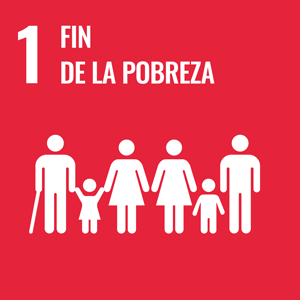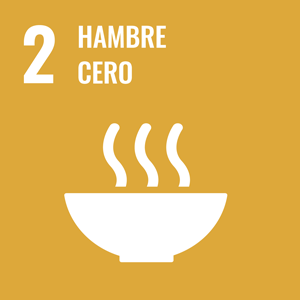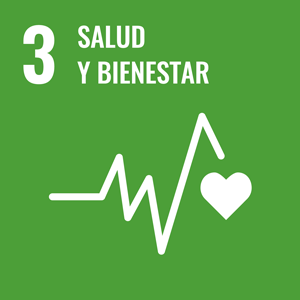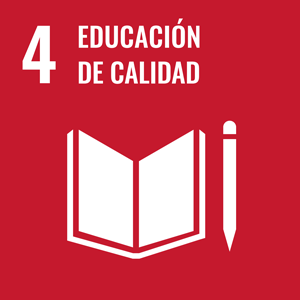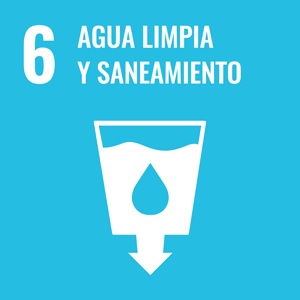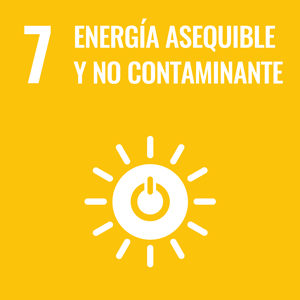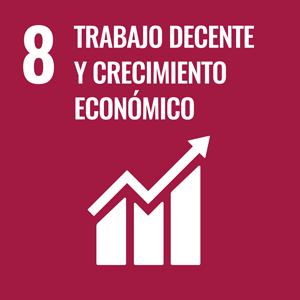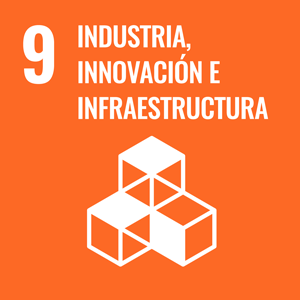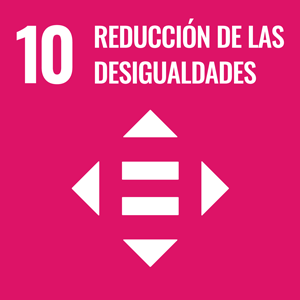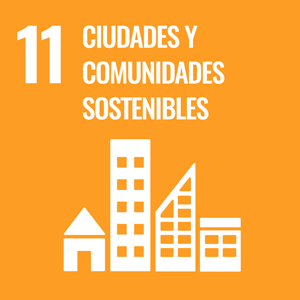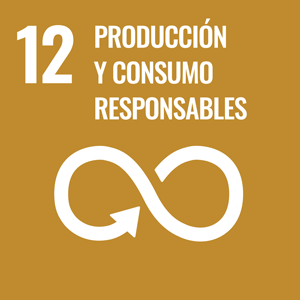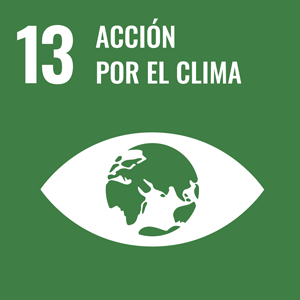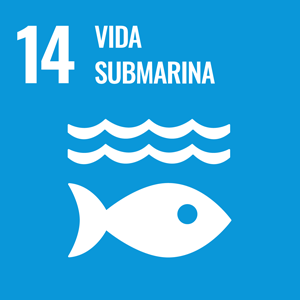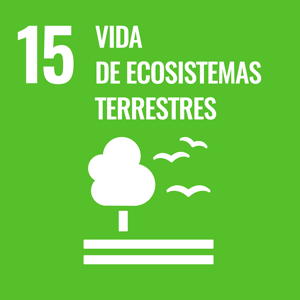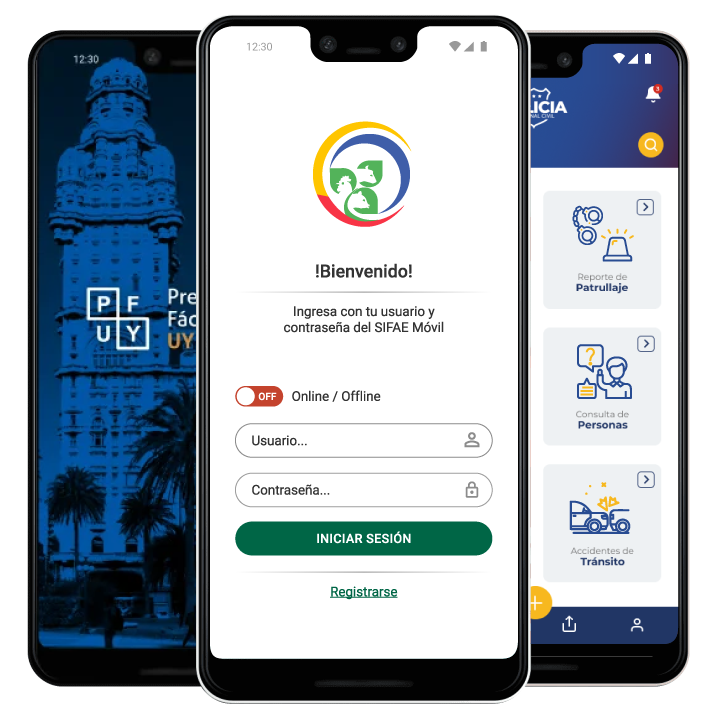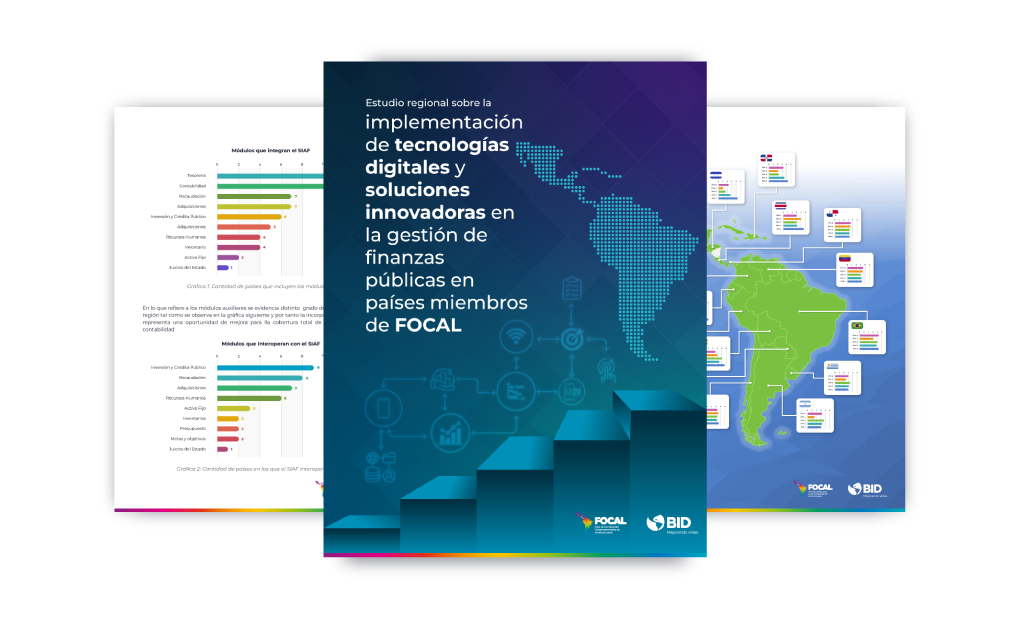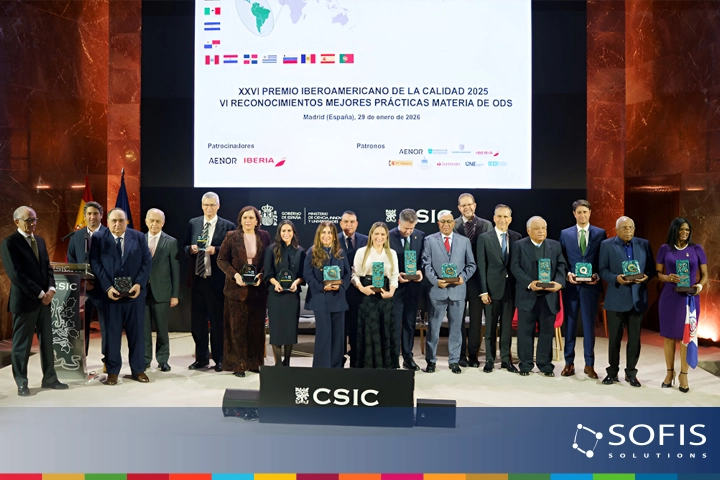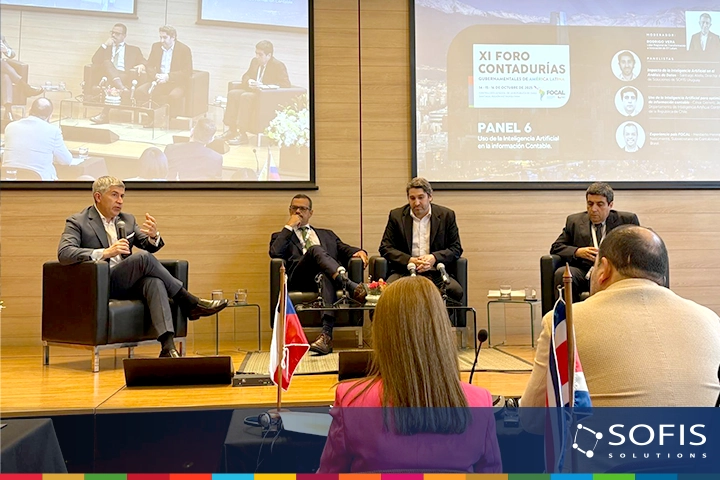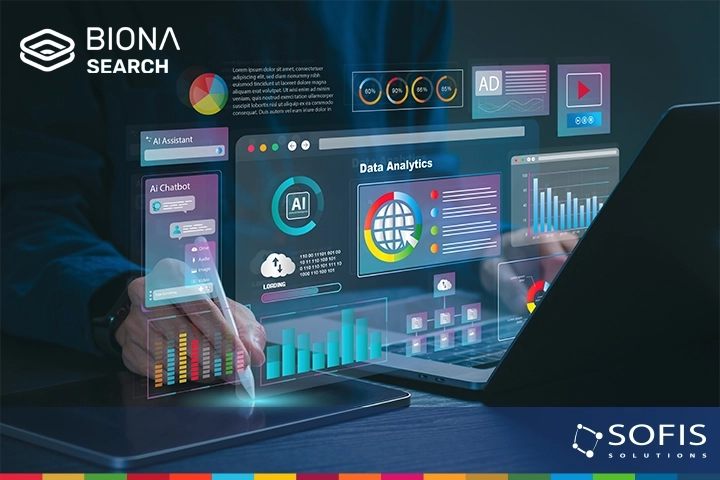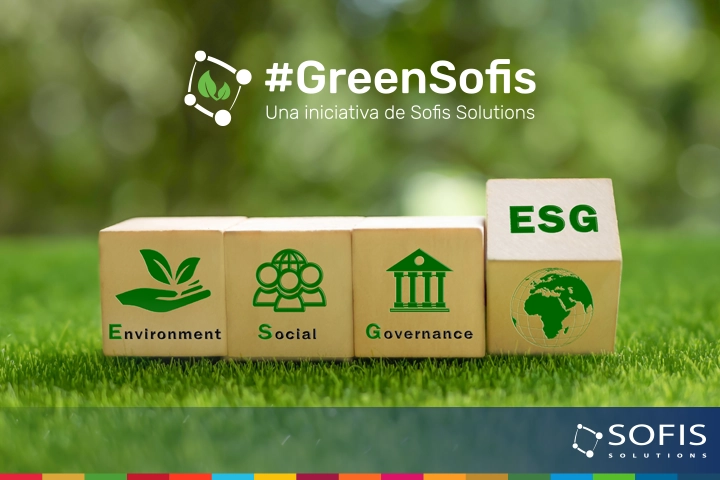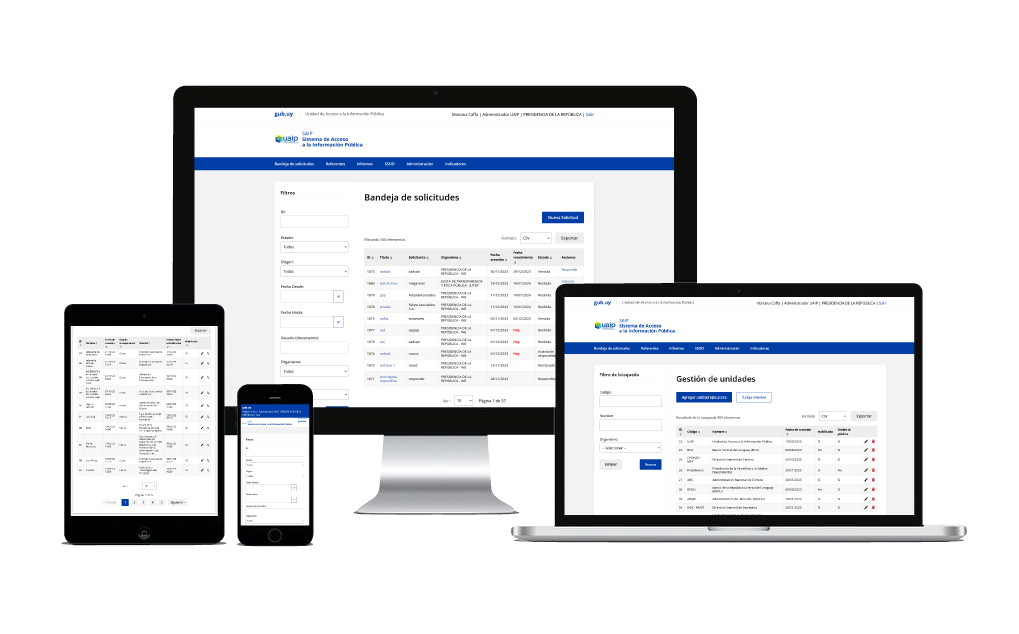 Beneficiary: AGESIC (UAIP-Public Information Access Unit)
From 2015 until 2023
Country: Uruguay
Beneficiary: AGESIC (UAIP-Public Information Access Unit)
From 2015 until 2023
Country: Uruguay
Public Information Access System
The Public Information Access System (SAIP) allows the centralization of the management and tracking of public information access requests submitted to public agencies, enabling any person to submit the request online, track its progress, and receive the response when the requested information is available.
It also allows the obligated entities to generate and send compliance status reports and reports of reserved information as required by law. Additionally, it enables the designation, uploading, and updating of the active and passive transparency officers in the system as required by regulations.
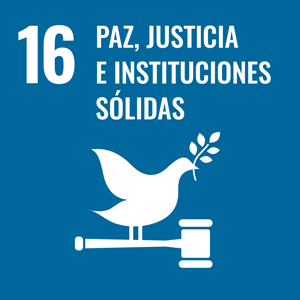
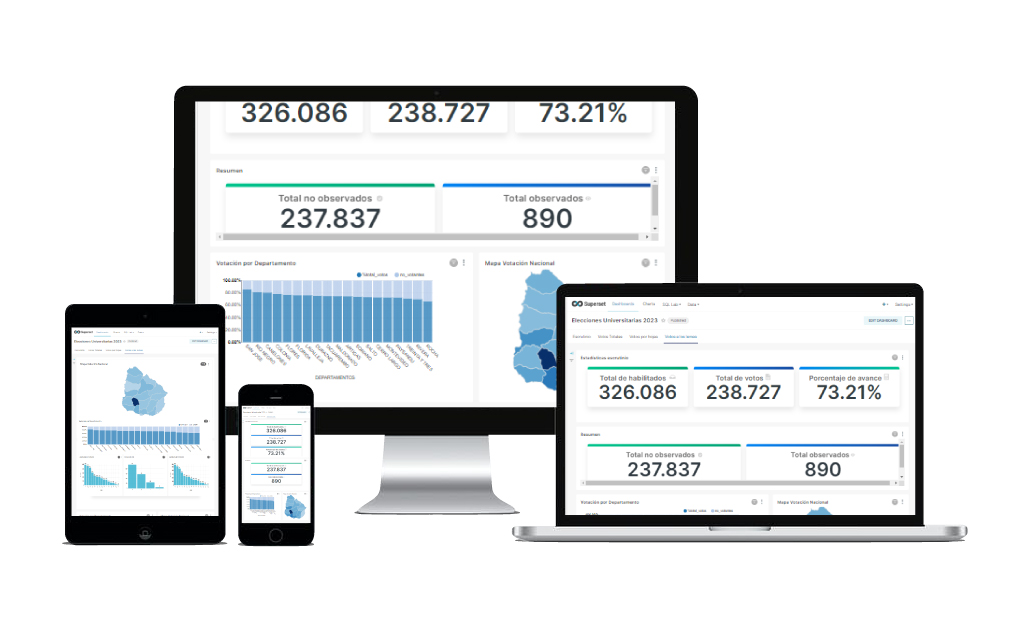 Beneficiary: Electoral Court of Uruguay
From 2022 until 2023
Country: Uruguay
Beneficiary: Electoral Court of Uruguay
From 2022 until 2023
Country: Uruguay
Electoral Process and Scrutiny Analytics
This project consisted of the development of an analytical database through the extraction of the operational databases of the Electoral Court linked to the electoral process itself (voting progress, circuits with transmission problems, etc.) as well as to the results of the primary and final scrutiny related to the university elections.
From this database, dashboards were built for the different user profiles involved in the process with real-time data that allowed members of the Electoral Commissions and the organization to make data-driven decisions.

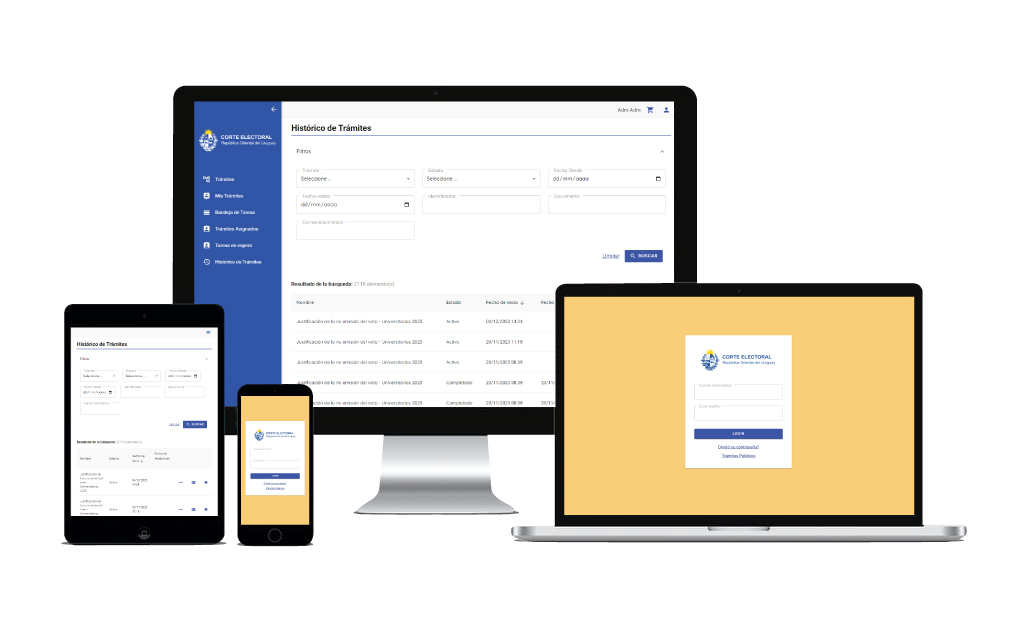 Beneficiary: Electoral Court of Uruguay
From 2021 until 2023
Country: Uruguay
Beneficiary: Electoral Court of Uruguay
From 2021 until 2023
Country: Uruguay
Online procedures for citizenship
The Electoral Court of Uruguay incorporates a procedure management tool through which citizen procedures related to documentation required by other agencies have been automated, such as proof of voting, justification for not voting (in cases of compulsory voting), payment of fines, registration of volunteers for the Voting Receiving Commissions, among others.
The tool includes the initiation of the procedure by the citizen on the procedures portal, the internal resolution by the agency (through process automation), the issuance of documentation, and the delivery of the documentation to the citizen.

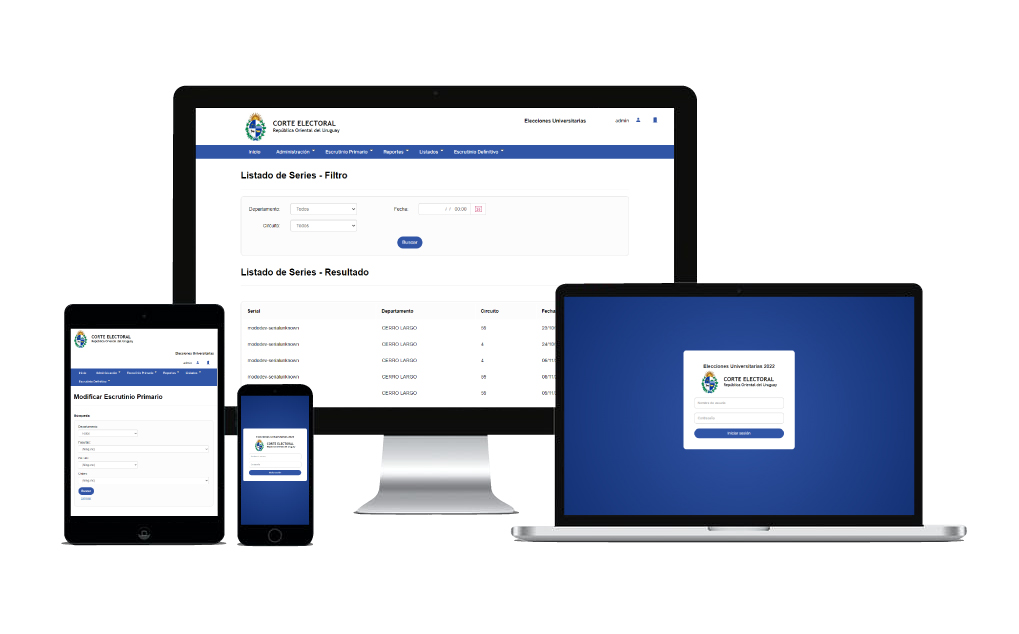 Beneficiary: Electoral Court of Uruguay
From 2021 until 2023
Country: Uruguay
Beneficiary: Electoral Court of Uruguay
From 2021 until 2023
Country: Uruguay
Scrutiny Management System
This system automates the receipt of vote counting data from each circuit and processes it centrally to issue the consolidated vote count. It applies to elections held by the Electoral Court of Uruguay that are not national elections. The system includes functionalities corresponding to the preliminary vote count (data received directly from the voting receiving commissions) and the final vote count (resulting from validation and final tally).
The system includes a security scheme based on best practices in electoral processes for the reception, storage, and issuance of results.
Additionally, the system provides voter data (whether they voted or not) and result data for use by external systems.

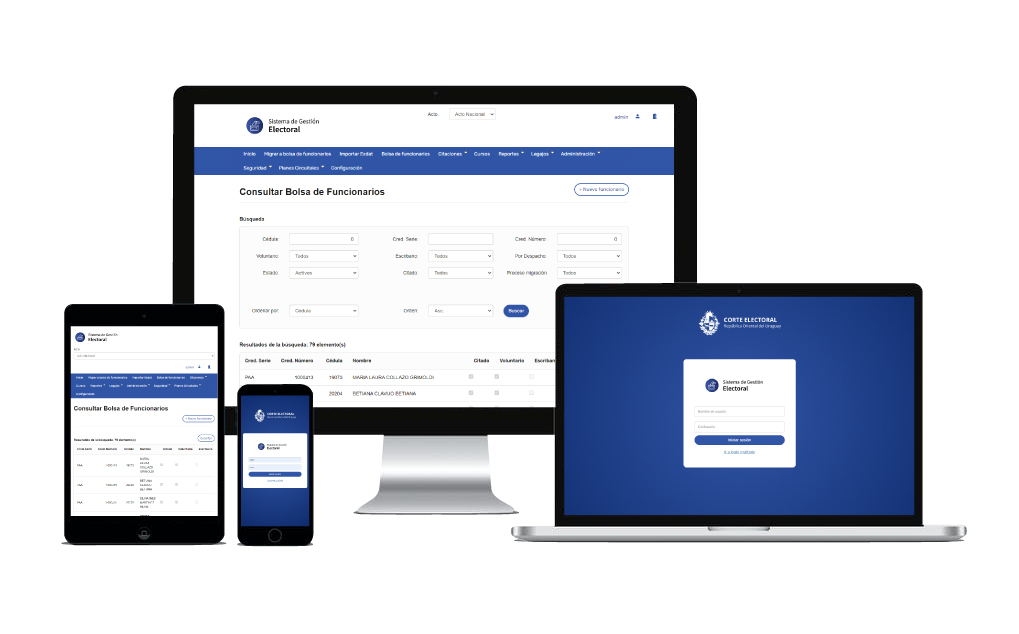 Beneficiary: Electoral Court of Uruguay
From 2021 until 2023
Country: Uruguay
Beneficiary: Electoral Court of Uruguay
From 2021 until 2023
Country: Uruguay
Electoral Management System
The Electoral Management System automates the processes related to the logistics of elections conducted by the Electoral Court of Uruguay. Its main functionalities include:
Creation of the Circuit Plan. Through assignment optimization algorithms, it generates the circuit plan that determines the circuits where citizens can cast their vote.
Management of Voting Locations. Registration, consultation, and assignment of voting locations to the circuits in the plans.
Voting Receiving Commissions (CRV). Assignment of people to each voting receiving commission in each circuit, using optimization and rules that comply with current regulations. The voting receiving commissions are composed of primary and substitute members, prioritizing assignments in the circuits where they are registered to vote.
Training for CRV members. The system includes management of training sessions for the members of the voting receiving commissions.

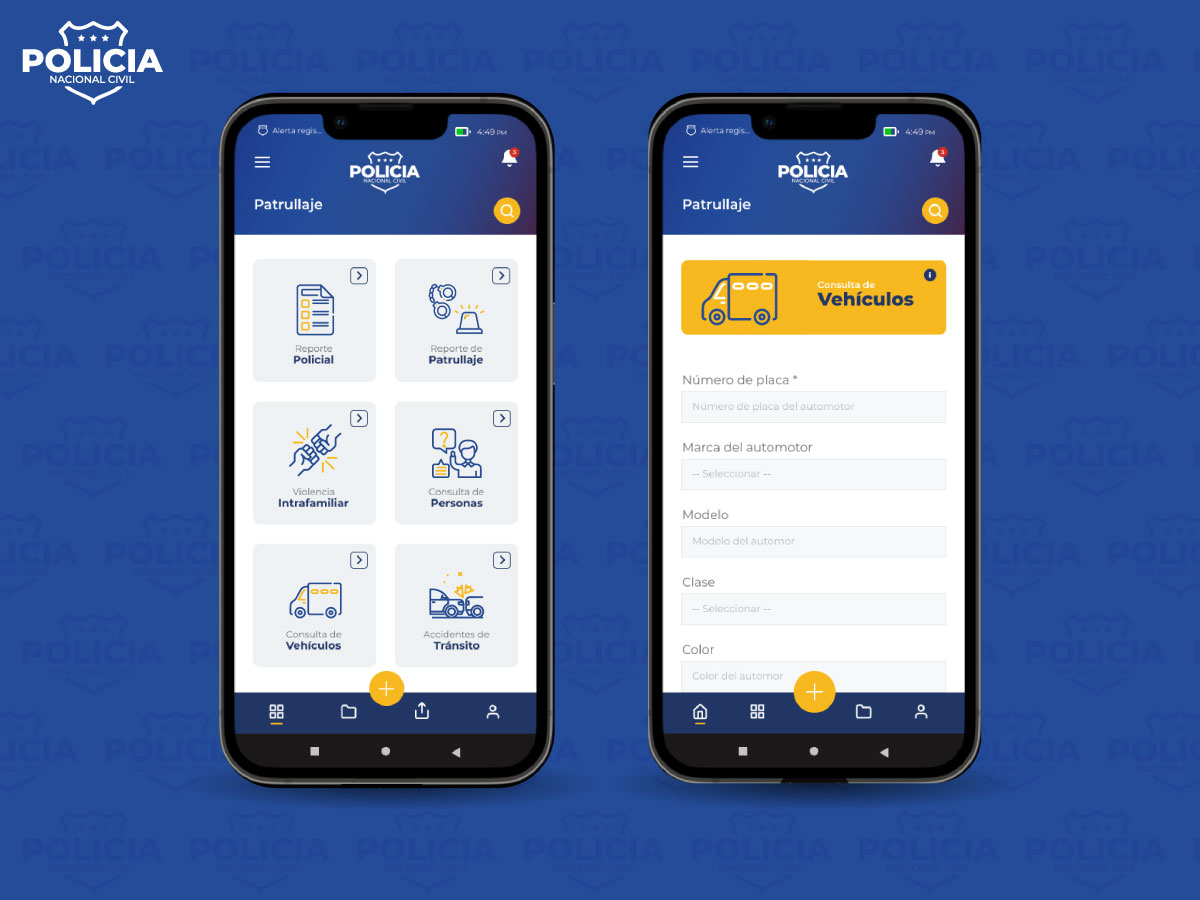 Beneficiary: National Civil Police
From 2021 until 2022
Country: El Salvador
Beneficiary: National Civil Police
From 2021 until 2022
Country: El Salvador
Digital Patrols
Digital Patrols is a mobile application installed on authorized Android devices that allows police officers to document relevant activities or events during their patrol shift.
The main functionalities include:
- Real-time patrol tracking: The person in charge of leading the patrol indicates the start and end of the patrol from their application. During the patrol, the movement of the mobile device can be monitored through a web application accessible from the institution.
- Police reports: This feature allows reporting suspicious incidents or traffic accidents by sending a photo if required along with the coordinates of the event.
- Domestic violence: Allows reporting cases of domestic violence for follow-up via the back-office application.
- Personal or vehicle data lookup: Through OCR reading (a mechanism to extract text from a photo to a document), it allows police officers to determine if the owner of an identity document has an arrest warrant or, in the case of vehicles, a theft report.
This application helps improve the quality of service to citizens and provides the institution (PNC) with a tool to streamline their processes during patrol shifts.

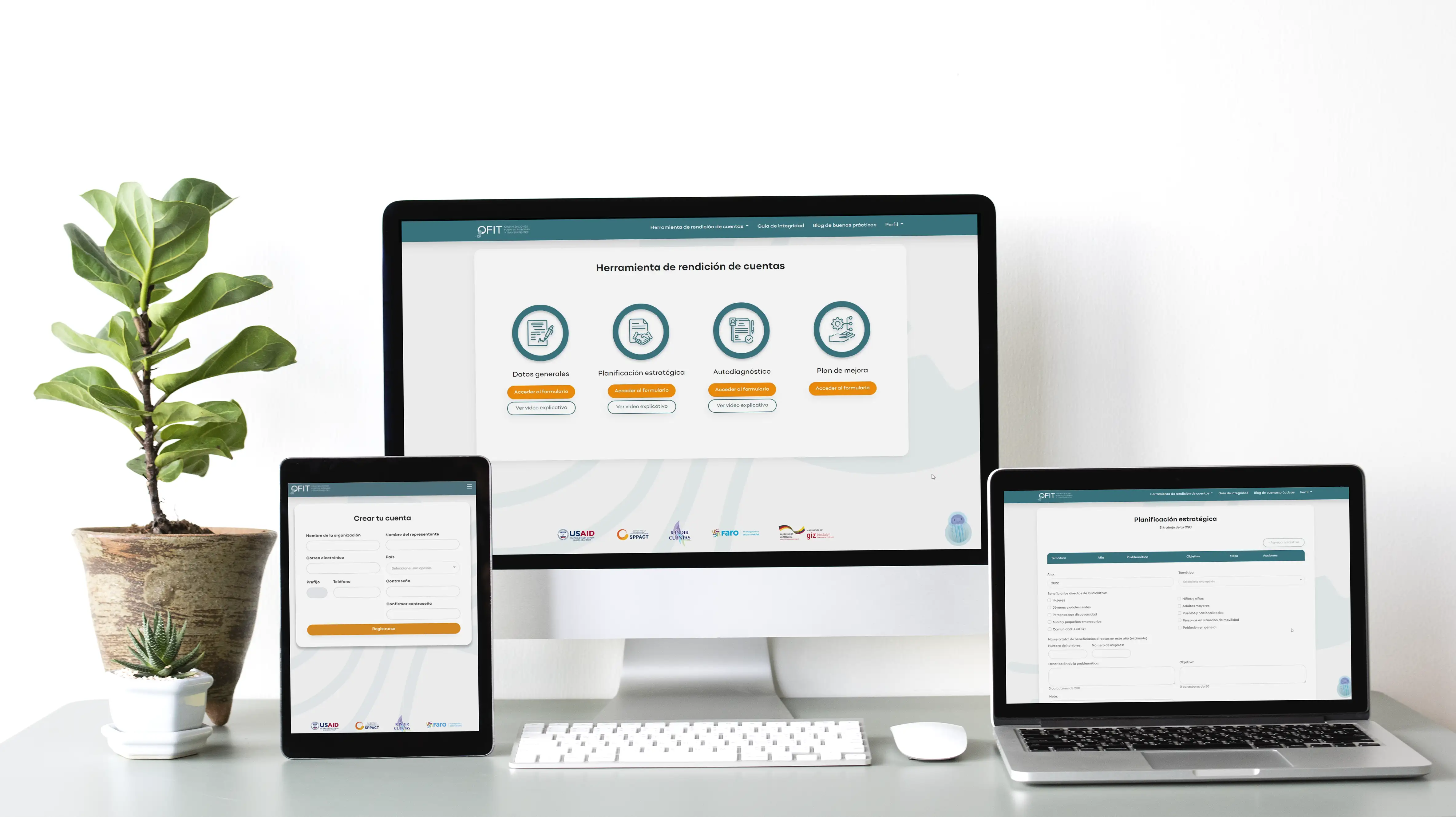 Beneficiary: Center for Research and Collective Action - FARO
From 2022 until 2022
Country: Ecuador
Beneficiary: Center for Research and Collective Action - FARO
From 2022 until 2022
Country: Ecuador
Digital Tool for Strong, Integrity, and Transparent Organizations
This project consisted of the creation and web-technological development of a digital accountability tool. Its objective is to contribute to strengthening the capacities of civil society institutions in Ecuador regarding accountability, transparency, and integrity mechanisms.
The digital tool OFIT (Strong, Integral, and Transparent Organizations) offers an interactive guide with content related to best practices, focused on promoting integrity and fostering the development of institutional competencies.
Through this interactive and user-friendly solution, users can:
- Perform a self-assessment to identify strengths and weaknesses of their institutions.
- Develop an improvement plan to increase efficiency and effectiveness in management.
- Systematize the work and results of their institution.

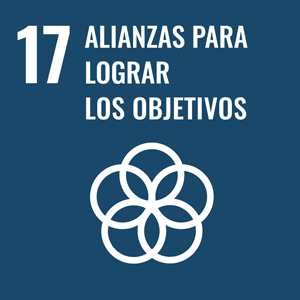
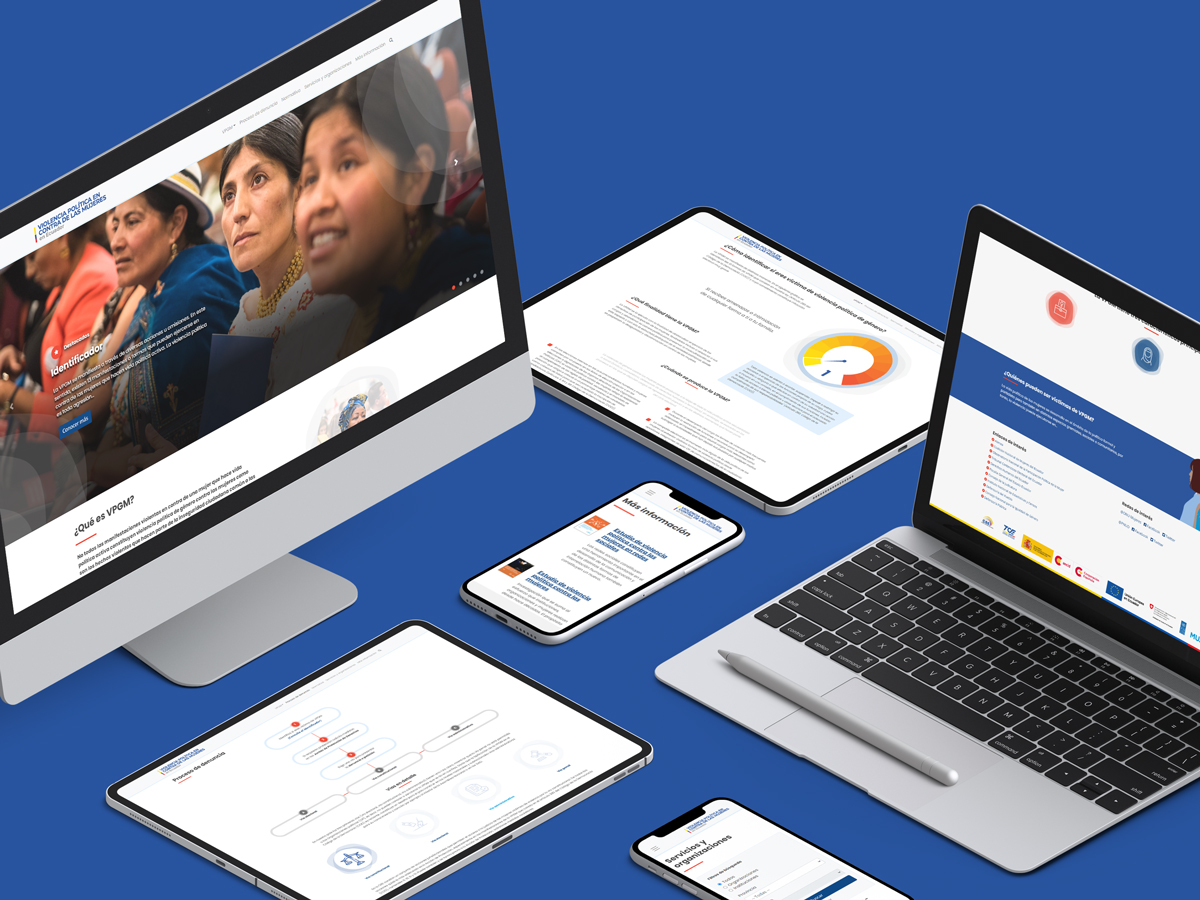 Beneficiary: UN - Women
From 2021 until 2021
Country: Ecuador
Beneficiary: UN - Women
From 2021 until 2021
Country: Ecuador
Portal on Political Gender Violence
This project, led by UN Women in Ecuador, aims to highlight issues related to gender-based political violence against women in the country. Women, like men who are actively involved in politics, whether partisan or in other areas, are subject to public scrutiny and social control. Therefore, gender-based political violence should not be confused with critical analysis or denunciation of irregularities in the performance of office, as long as they are well-founded and do not constitute ongoing practices of political harassment aimed precisely at discrediting the presence of women in the political sphere. This portal provides information about gender-based political violence against women, the complaint and case follow-up process, the compilation of existing regulations, as well as a catalog of public support services and civil society organizations. Access the portal
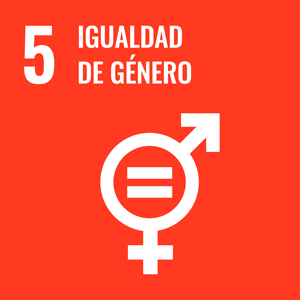

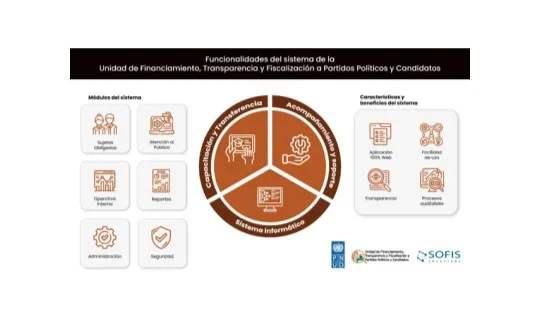 Beneficiary: Clean Policy Unit
From 2021 until 2021
Country: Honduras
Beneficiary: Clean Policy Unit
From 2021 until 2021
Country: Honduras
Accountability Platform
The project consisted of the development of a Platform for the Accountability of Political Parties and candidates regarding the income and expenses of their campaigns. The platform has two main components:
- management by the end users, and
- administration by the officials of the Clean Politics Unit, regarding the evaluation of sworn statements and their “approval.”

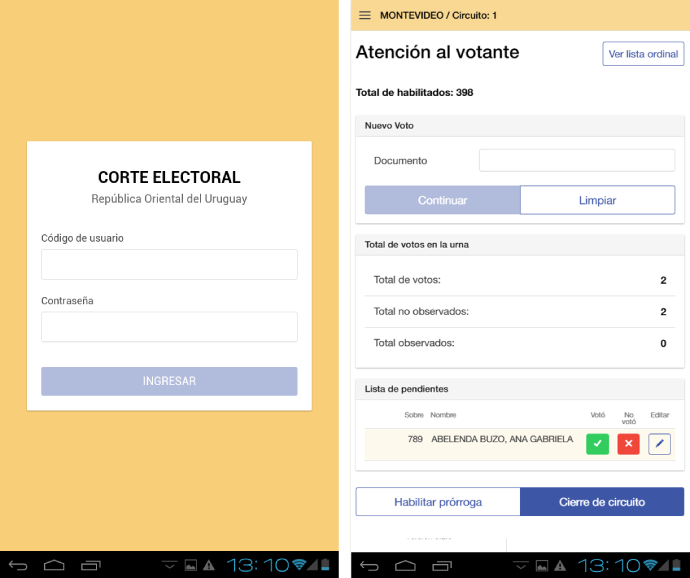 Beneficiary: Electoral Court
From 2018 until 2018
Country: Uruguay
Beneficiary: Electoral Court
From 2018 until 2018
Country: Uruguay
Management of electoral rolls
The information system includes a mobile application that manages the registry at each voting table, installed on tablets, and a web application that centralizes the vote counting to obtain the provisional departmental tally.
This system was based on the system developed previously for the 2011 university elections, used on Ceibal tablets—which was later used for the elections of authorities of the Professional University Retirement and Pension Fund, and the elections of the State Sanitation Works (OSE)—and was adapted for use on tablets.

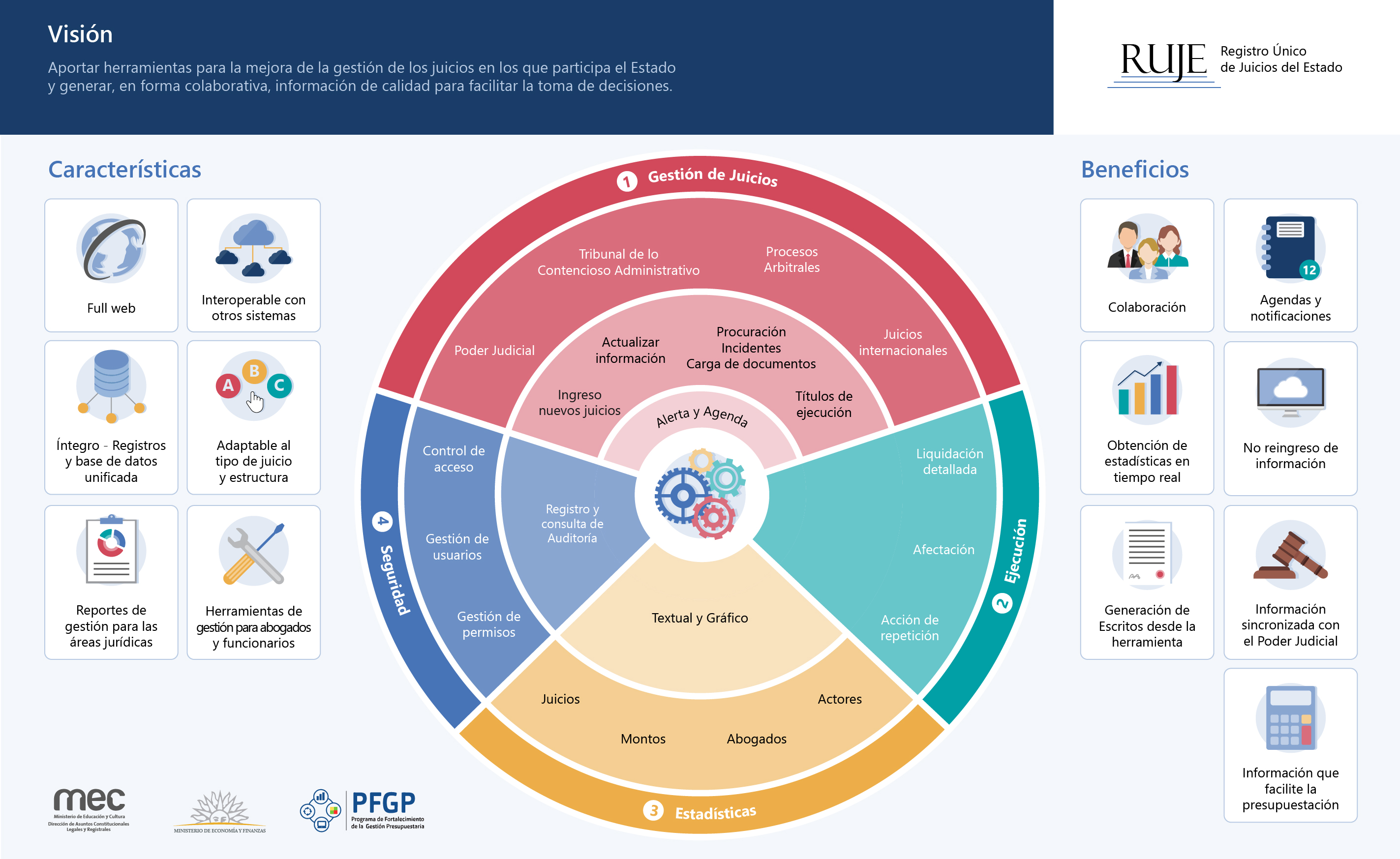 Beneficiary: Ministry of Education and Culture
From 2018 until 2022
Country: Uruguay
Beneficiary: Ministry of Education and Culture
From 2018 until 2022
Country: Uruguay
Single Registry of State Trials
The general objective of the information system is to identify, classify, and quantify all legal cases involving the State, whether as plaintiff, defendant, third party, guarantor, among other roles.
It is a collaborative tool in which various agencies of the Uruguayan State participate, registering legal cases and their associated data (hearings, precautionary measures, rulings, economic data), managing a shared calendar, and an alert system.
The project is led by the Ministry of Education and Culture and financed by the Budget Management Strengthening Program of the Ministry of Economy and Finance.




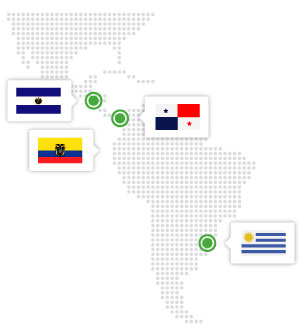










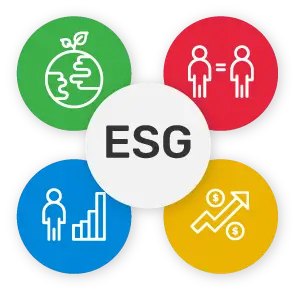






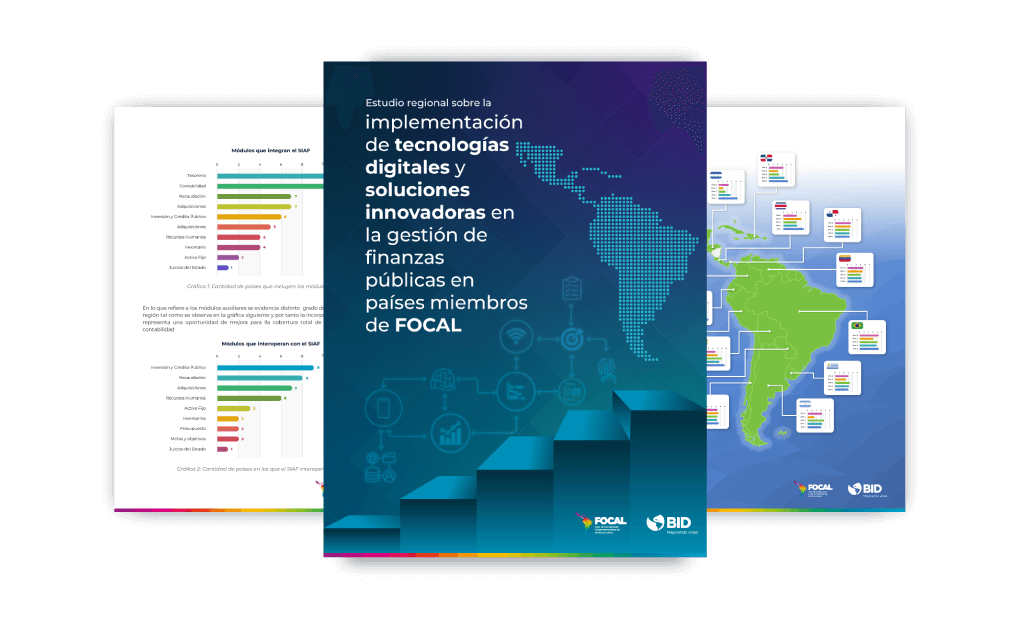
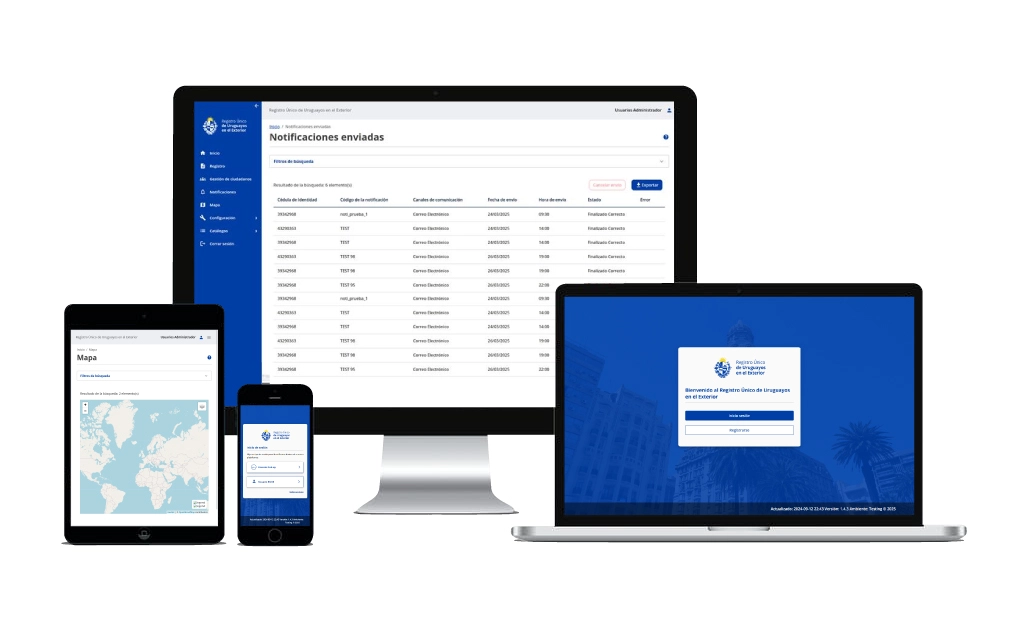
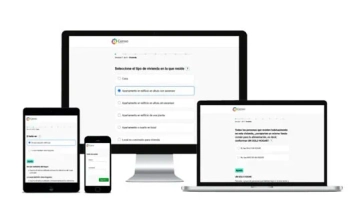
 Digital Signature
Digital Signature BionA Suite
BionA Suite Biona SIgn
Biona SIgn